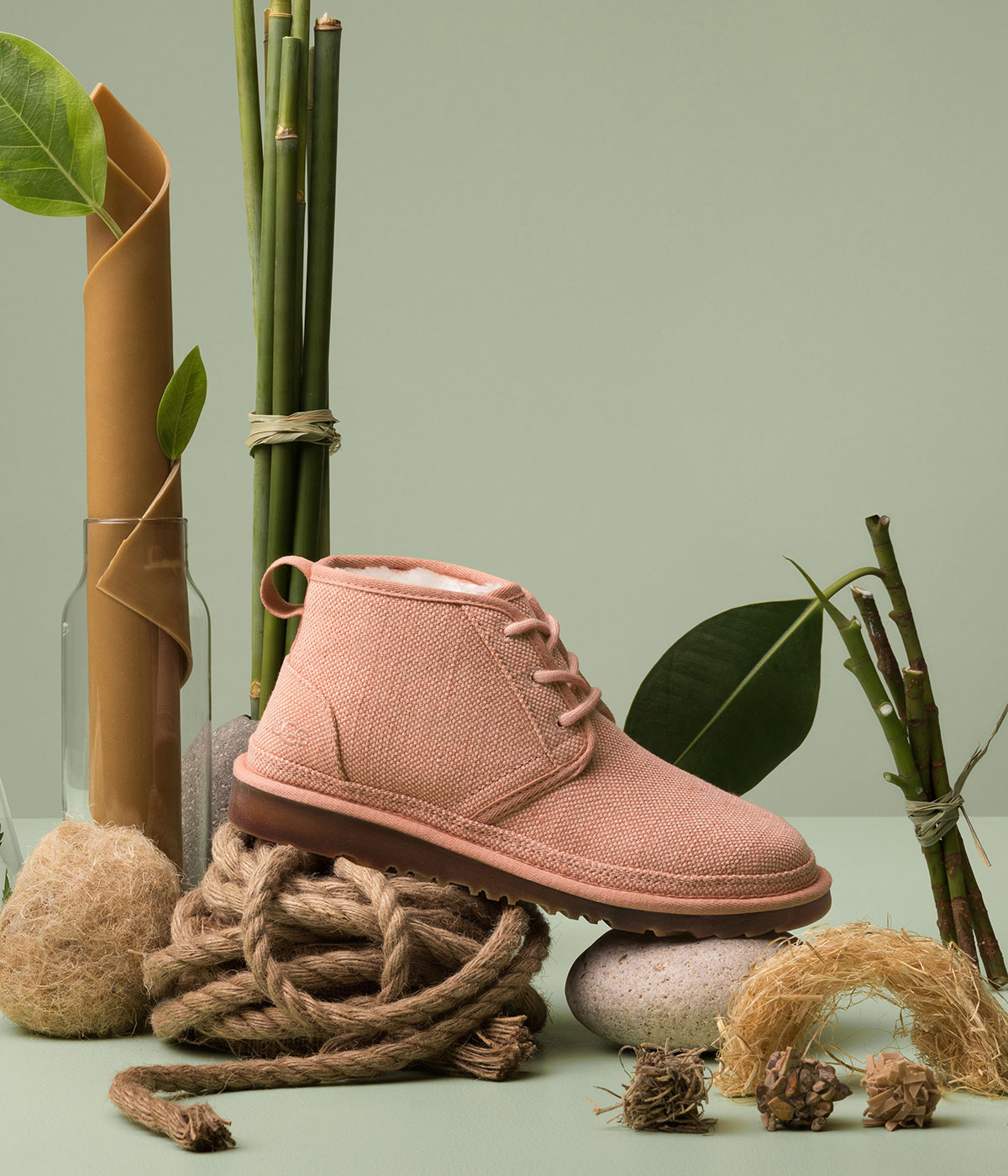Are these Ugg's most sustainable shoes yet?
Californian brand Ugg has unveiled unisex sandals, boots and slippers in its Plant Power collection, an offering that incorporates carbon-neutral, plant-based materials

Receive our daily digest of inspiration, escapism and design stories from around the world direct to your inbox.
You are now subscribed
Your newsletter sign-up was successful
Want to add more newsletters?
It's no surprise that in 2020, snuggly self-care-inducing Ugg slippers and shoes were some of the most coveted styles searched for online. In Lyst's State of Fashion 2020 report, it’s estimated that the Californian label’s slippers were searched for on average 201,000 times a month. An Ugg silhouette – whether sheepskin-lined, flounced in colourful fluff, or the result of a hotly anticipated shearling-swathed collaboration with a brand like Telfar – has the power to protect and comfort, two tenets that continue to carry the upmost importance today, when we navigate a second year in the midst of the Covid-19 pandemic.
Also uplifiting is the brand's commitment to sustainable, ethical and ecological manufacturing practices, which are laid out within Ugg’s online Feel Good Future platform. This focuses on ‘environment', ‘community' and ‘innovation’.
In line with the brand's eco-credentials, Ugg has launched its Plant Power collection, and its most sustainable offering of unisex styles to date, from colourful fluffy sandals to organically hued chukka boots, which are crafted using carbon-neutral, plant-based materials. These include renewable sugarcane, hevea rubber, natural hemp, and Tencel lyocell from responsibly harvested trees.
Ugg unveils carbon-neutral collection

‘Our design team took inspiration from our iconic styles and created new silhouettes with carbon-neutral, plant-based materials. The resulting Plant Power collection tells a story about what is possible, and it is an exciting step in on our journey towards a more sustainable future,' says Andrea O’Donnell, president of Ugg and Koolaburra by Ugg at Deckers Brands. Ugg aims to increase its use of recycled, repurposed, plant-based, regenerated, bio-based, renewable and certified fibres by 35 per cent by 2027.
In addition to the Plant Power collection, a host of other initatives reflect a conscious approach to design. The brand saved more than nine million pounds of packaging between 2017 and 2020, is investing in the regenerating of 200,000 acres of land in 2021, and is launching a waste-reducing repair programme by the end the year.
Receive our daily digest of inspiration, escapism and design stories from around the world direct to your inbox.